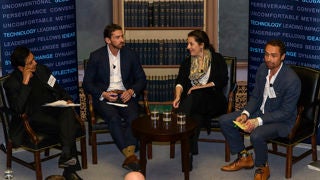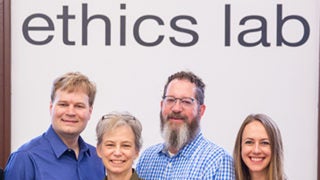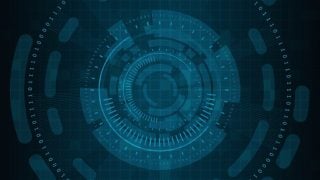How did you first become interested in the intersection of technology and society?
I was a kid who was on the internet early, in 1993, when the world wide web was not yet a thing. It was exciting that this beeping, ridiculous-sounding thing attached to a telephone could connect you to people around the world. I remember thinking, wow, computers can be made up of people! For me, technology was connected with sociology from the beginning.
My entire career has been about moving between layers of technical infrastructures, human practices and social structures.
I studied computer science as an undergraduate to build the technical systems that were so empowering to me as a young person. In graduate school, I started visualizing networks of people that formed online, first as traces from Usenet and email and then the networks that formed on social media start-ups like Friendster and MySpace. I then turned to understand how people—and especially teenagers—engaged with social media. After graduate school, I went to Microsoft Research where I began studying the “big data” phenomenon and went deeper into my studies of privacy. In 2013, I founded a research institute, Data & Society, to collaborate with more people trying to make sense of sociotechnical issues. For the past few years, I’ve researched how the 2020 U.S. Census sought to produce democracy’s data infrastructure, one of most significant pieces of data that’s produced in this country.
What do you want the Georgetown community to know about you?
I’m a researcher through and through, curious to the core, fascinated by different methods and ways of seeing the world. That’s what gets me up every day. A former undergraduate advisor once told me that as researchers, we have the luxury and privilege of doing research, and we have a responsibility to profess and communicate what we learn in order to give back. I want to learn and keep gifting knowledge to help others unlock puzzles they are struggling with.
As a scholar, I’ve done a terrible job of staying in a single discipline or staying focused on a single topic. That’s also one of the reasons why I’m excited to come to Georgetown. There are so many interesting, curious, smart and informed people who approach scholarship from different perspectives. I’m excited to work with passionate students and learn from different members of the Georgetown community. Coming to Georgetown is like letting a kid in a candy store.
What drew you to join Georgetown and its Center for Digital Ethics and Tech & Society Initiative?
I’ve known and admired Georgetown faculty across different disciplines for years. The Law Center has the largest ecosystem of privacy legal scholars out there. The computer science department includes experts in differential privacy. There are multiple centers that approach sociotechnical issues with a civil rights, racial justice and/or social justice perspective. There are Science and Technology Studies (STS) scholars who understand government and how to think about policy. I’m excited to work with all of these different scholars and researchers, and help create bridges if possible.
Georgetown’s backyard is the federal government. There’s such a need for a more robust conversation about the relationship between ethics, policy and technology—and so I’m excited that this is something that the faculty are excited to come together to address. Plus, frankly, I’m excited to work with so many scholars who are committed to a healthier, more just social world through their research.
Why is it important to study technology, policy and society with an ethical lens now? Why is this field important for Georgetown University students to study?
I think many different disciplines are starting to recognize that technology is part of society, and it always has been. Technology is not a separate thing. Technology is affecting every sector, every industry, every organization’s structure. Technology has also been integrated into democratic governance for forever. Grappling with the relationship between the government and different kinds of innovation is central to be able to address large-scale challenges.
The key to thinking about ethics in this moment is to resist the idea that technology is neutral and apolitical and separate. Technology is entangled with our social values and commitments; it’s entangled with power, and therefore, ethics is an inherent part of the conversation whether or not you’ve chosen to ignore it. Ethics isn’t a checklist but a way of seeing the world.
The governance of technology happens at every level, from design to policy. The choices that people make in how they design, build, use and govern technology close out different possible futures. As such, these are choices shaped by ethical commitments. We must all be more conscientious about how we move through this world and how we build and leverage the tools available to us. When you shape people and practices, you shape outcomes. Georgetown is deeply committed to helping students grapple with values, ethics and morality with an eye toward building a more just world. As such, I’m excited that Georgetown is investing in a Center for Digital Ethics and the Tech & Society Initiative more generally.
Editor’s Note: danah boyd legally changed her name to all lower-case. She shares more about this decision on her website.




